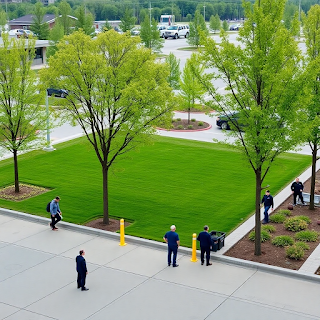Forgetfulness and mistakes often go hand in hand. Discover how cutting-edge Navy-funded research aims to reduce errors with cognitive science and AI
How Can We Make Fewer Mistakes? The US Navy Just Invested $860K to Find Out
Can a better “bookmark” save lives, boost productivity, and even prevent disasters? The US Navy thinks so.
Why Do We Keep Making Mistakes?
Ever forgotten where you left off in a task, only to return hours later confused or uncertain? That’s not just forgetfulness — it’s called place-keeping, and it might be the hidden reason behind many human errors, from workplace mistakes to surgical mishaps to military missteps.
Recently, the US Navy invested $860,000 into understanding how to help people make fewer mistakes by improving place-keeping. And it’s not just about military efficiency — this research might soon change how you work, drive, or even cook dinner.
What Exactly Is Place-Keeping?
Place-keeping is the mental ability to keep track of where you are in a sequence of steps, especially when interrupted. It’s what helps a pilot remember the next step in a flight checklist or helps a surgeon resume safely during a complicated operation.
Interruptions—whether a phone call, a sudden emergency, or a moment of distraction—can cause us to lose that “place” and make costly mistakes. This problem affects everyone: office workers, students, soldiers, and surgeons alike.
Why the US Navy Is Taking This Seriously
The US Office of Naval Research (ONR) has recently allocated $860,000 to researchers at the University of Wisconsin-Madison to develop strategies for enhancing place-keeping skills. Why?
Because in high-stakes environments like naval operations, even a single lost step could mean mission failure or even loss of life.
But here’s the twist: improving place-keeping doesn’t just benefit soldiers or sailors. Research suggests it could help everyone perform better in everyday life.
The Science Behind Place-Keeping Errors
According to professor Deborah Boehm-Davis, an expert in cognitive psychology, interruptions often cause us to “lose the thread” of our thinking, especially in complex or multi-step tasks.
In one notable study published in the Journal of Experimental Psychology (2023), researchers found that interrupted participants made 15% more errors than those who could work uninterrupted.
Even more interesting, people often don’t realize they’ve made a mistake after an interruption, leading to compounding errors.
What’s Being Done: Smarter Interfaces, Better Training
The US Navy’s funding supports innovative research into creating smarter checklists, user-friendly digital tools, and cognitive training programs designed to bolster place-keeping even in chaotic environments.
Potential applications include:
-
Aircraft control panels with intelligent reminders
-
Digital assistants that prompt users after an interruption
-
Training programs to improve mental resilience and memory span
Some commercial applications might even trickle down into civilian technology—think smarter reminders on your smartphone or error-preventing features in professional software.
Could AI Help Us Make Fewer Mistakes?
Artificial Intelligence is already being explored to assist with place-keeping. Tools that monitor sequences and prompt users intelligently are becoming popular in healthcare, aviation, and tech industries.
For example, researchers at MIT’s Computer Science and Artificial Intelligence Laboratory (CSAIL) are working on AI-driven cognitive assistants that could one day “nudge” you gently when you forget a step during critical tasks.
Why This Matters for Your Everyday Life
While the Navy’s investment might seem far removed from civilian life, the potential impact is profound:
-
Safer surgeries
-
Fewer driving mistakes
-
Better workplace productivity
-
Even improved cooking success at home!
If you’ve ever forgotten to turn off the stove mid-recipe after a text message — you get the picture.
Final Thoughts: Making the World Less Error-Prone
The US Navy’s $860,000 investment into place-keeping research isn’t just about military precision — it’s about addressing one of the most overlooked but fundamental human challenges: staying on track when life gets chaotic.
As research continues, we might soon see everyday tech products that subtly guide us back on task, helping reduce mistakes, prevent disasters, and improve life’s daily flow.
Until then, maybe try leaving a sticky note where you left off. It’s the low-tech version of what the US Navy is spending nearly a million dollars to solve.
References
-
Office of Naval Research Grant – University of Wisconsin-Madison, 2024. Read more here
-
Altmann, E.M., Trafton, J.G. (2023). Interruptions and errors in task performance: The role of working memory. Journal of Experimental Psychology. View study
-
MIT CSAIL, 2024. AI Assistants in Cognitive Work. More info
Tags
#HumanError #USNavy #CognitiveScience #Productivity #PlaceKeeping #MentalFocus #AI #Neuroscience #Distraction











Comments
Post a Comment